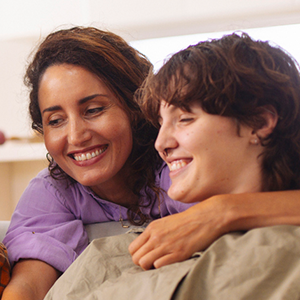Outreach: Keeping Stress Away

This school year may prove to be a difficult transition for many students. Since families were given options for their children to attend school during the COVID-19 pandemic, whether hybrid, remote or full time in-person learning, kids are understandably asking, “What will this school year look like?” Although promising signs indicate the pandemic is becoming more manageable, it’s reasonable to expect that back-to-school will still look a little different. The best we can do is make some predictions for the 2021-2022 school year.
Many students were completely disconnected from teachers and peers for an entire school year and they will be returning to an environment that may potentially cause a lot of anxiety. Schools across the country are finally being forced to look more closely into the mental well-being of those students.
Despite the uncertainty of this school year, there are some things that students can do to reduce stress and have an overall healthier mental mindset.
First, eat a healthy diet. Include vegetables, fruit and whole grains each day to decrease symptoms of depression and fatigue. Maintaining a healthy diet also boosts your mood and energy level, improves your memory and brain function.
Getting plenty of sleep will help keep depression and anxiety at bay. A lack of sleep can make you feel unfocused and overwhelmed because your body is not able to produce enough serotonin and dopamine to battle the stress. Lights from a cell phone, computer or television will trigger your mind to stay awake. Make it a habit to turn off electronics at least half an hour before bedtime.
Be active and engage in regular exercise such as walking, jogging, swimming or any after-school sport. Being active will increase your blood circulation, which reduces symptoms of anxiety and depression. Can’t commit to an organized sport? Try to get at least 30 minutes of exercise a day to maintain clarity and focus.
Building a strong social network will help reduce back-to-school anxiety. Include your friends, family, neighbors, teachers, school counselor and anyone else you can lean on to help you solve problems. This is especially important for students who are returning to school after being disconnected from teachers and peers last school year. Join clubs or teams and try to build up your social network. We are all here for each other.
Finally, be grateful. Using this coping skill helps with so many things! Practicing gratitude helps to combat stress, as well as when you feel overwhelmed. Use a journal to write down a few things for which you are grateful each day. While it may be difficult to feel grateful in the middle of stressful situations, use the journal to connect yourself to gratitude. Another option; before bed, try listing at least three things that you are grateful for each day, big or small. People who regularly express gratitude for positive things in life are overall happier and have lower rates of stress and depression.
School is a pretty stressful place in general, and COVID-19 has been the wild card for more than a year. Getting back to a place we feel comfortable will be unique to each person. Practicing good mental health will make this school year a lot less stressful and a lot more “normal.”
Outreach Teen & Family Services is a nonprofit, confidential counseling service. We offer programs to youth ages 5 to 21, parents and families, in a welcoming, supportive environment. www.outreachteen.org. 412-561-5405. This column is partially underwritten by the Mt. Lebanon Police Association.






